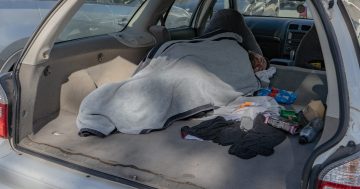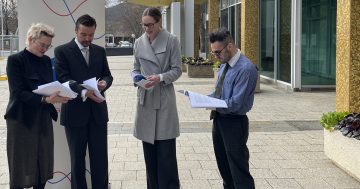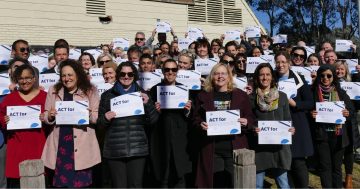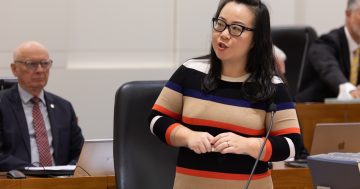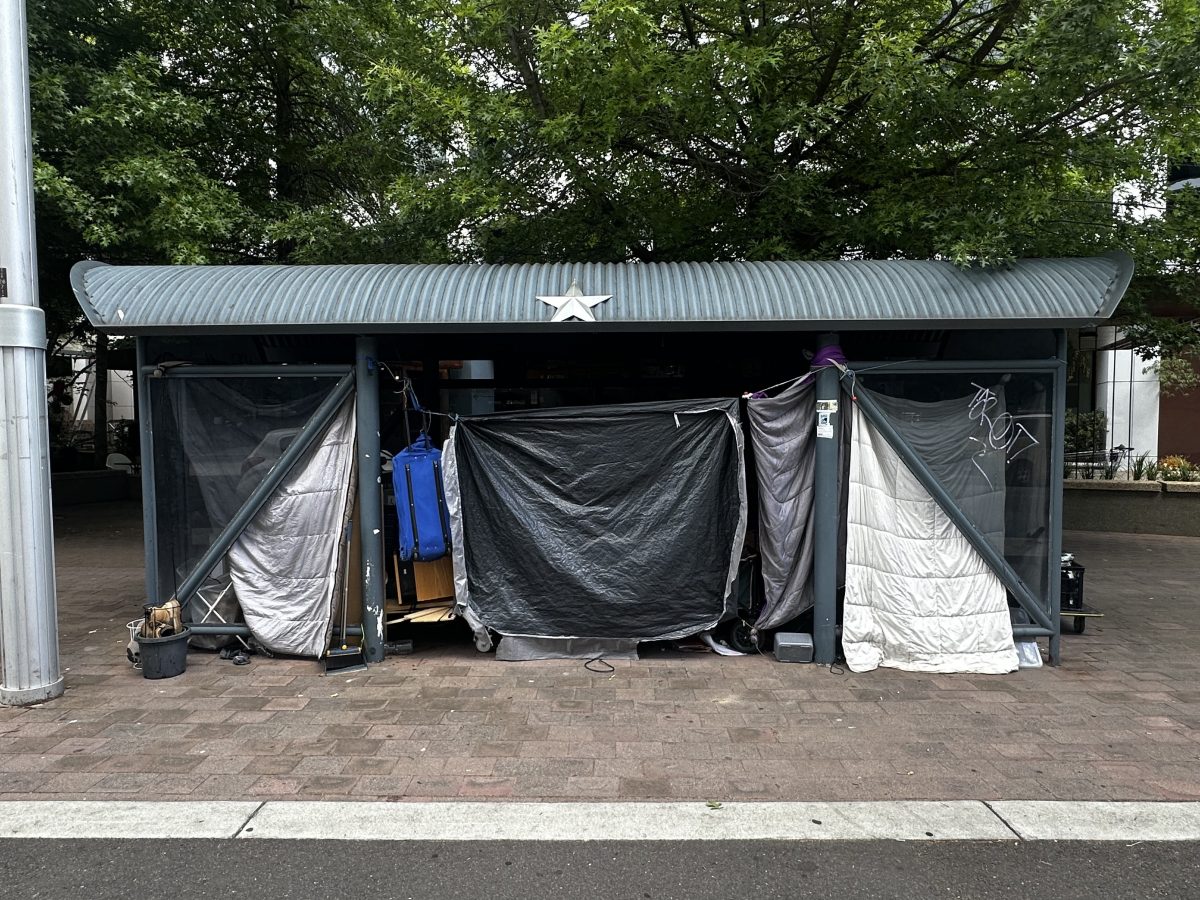
Homeless people have claimed a taxi rank on Allara Street in Civic. Photo: Darrah Miller-O’Byrne.
The number of homeless people in the city is increasing to the point it’s becoming dangerous, according to local business owners, but they’re not sure where to turn for help.
Darah Miller-O’Byrne runs the Crew Espresso Bar on Allara Street in Civic and says in recent months, he and his neighbours have had to put up with an increased level of antisocial behaviour from the area’s resident homeless.
“It has definitely got worse,” he says.
“I don’t know if it’s got to do with the Northbourne Flats being knocked down and people moving around or what … but there’s a lot more people and they seem to be more aggressive.”
One, in particular, has set up in a taxi rank along the street and taken it over as his home, complete with furniture and appliances.
“When he initially arrived about three months ago, he was sleeping on our benchtop outside, using our power, and I’d come in at 5:30 in the morning and it was just a mess,” Darah says.
“We open at 6 every morning, and in winter, it’s pitch black and I have female staff who range from 18 to 22 years old.”
Darah helped the man relocate to the nearby taxi rank, but from there, his situation only worsened.
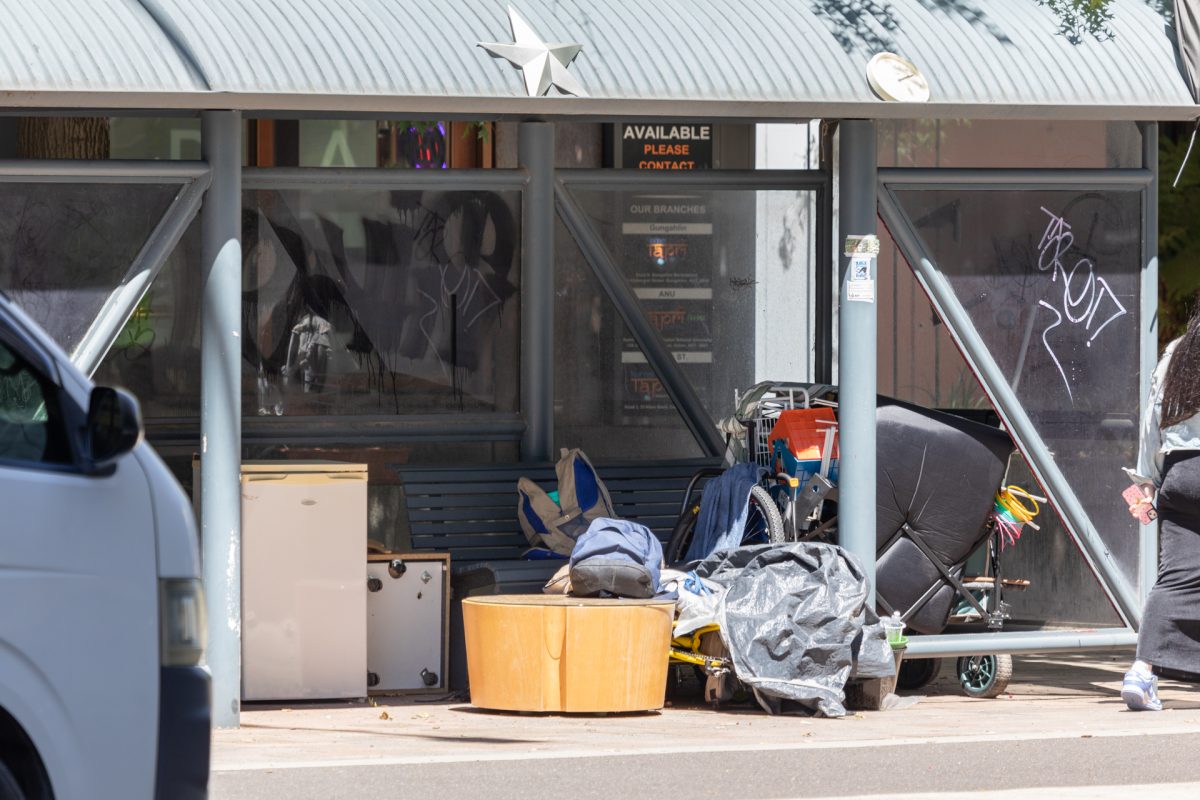
The taxi rank as it appeared on 12 February. Photo: Michelle Kroll.
“This guy that was quite nice and calm and collected began yelling at customers, ripping his shirt off, running out in front of traffic – he even got hit by a car over the Christmas break – and shooting up with needles out in the open.
“My business partner and I went up to him again one morning, and the place was just absolutely trashed – rubbish all over the floor – and with a fridge, TV, curtains, tables, bikes and three laptops all inside the taxi rank.
“It was really sad to see.”
Each time there’s an episode, Darah contacts the police and officers dutifully respond by attending the scene and calming the man down. But it seems the situation has reached the point of being a cycle.
“We’ve called the police, we’ve called Access Canberra, we’ve reached out to every single minister … but it didn’t matter who you contacted, it didn’t matter what due process you went through, ultimately, it was just like, ‘let him do his thing’.
“We’re just lost as to what we can do to help.”
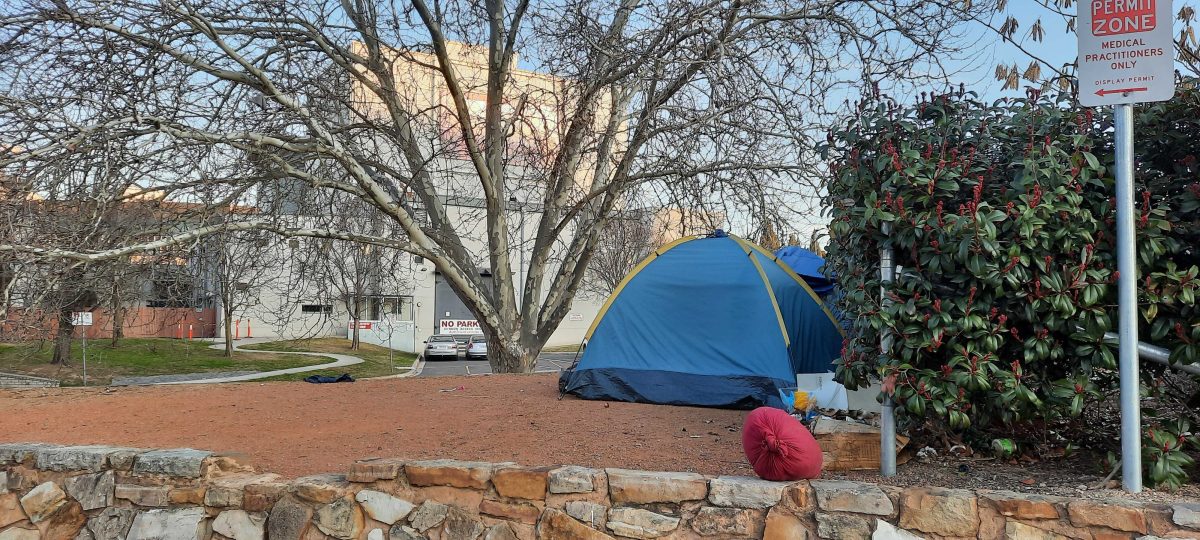
A homeless ‘camp’ near the Canberra Theatre Centre. Photo: Ian Bushnell.
The ACT Government website lists local services “that help people who are homeless or at risk of becoming homeless”, including housing services, free meals and food, healthcare, clothing, blankets, personal care, showers, laundry, and domestic and family violence support”.
It recommends OneLink as a first port of call, provided by the Woden Community Service.
“They will talk to you about what you need and what your options are,” the government says.
“They can also help connect you to the services you need.”
But in a policy document published prior to the October 2024 ACT election, ACT Shelter and the ACT Council of Social Services (ACTCOSS) noted how “services and systems are ill-equipped to respond to and support people with complex and intersecting needs”.
It also said, “Access to crisis accommodation is highly rationed, while at the same time, there are few pathways into permanent housing”.
“The supply of crisis housing needs to be increased, alongside an increase in the availability of social and supported housing and wraparound support to provide permanent pathways out of homelessness.”
ACTCOSS CEO Dr Devin Bowles told Region, “What’s happening in Civic is replicated in many shopping centres in the ACT now, in that there are a lot more homeless people now than there once were”.
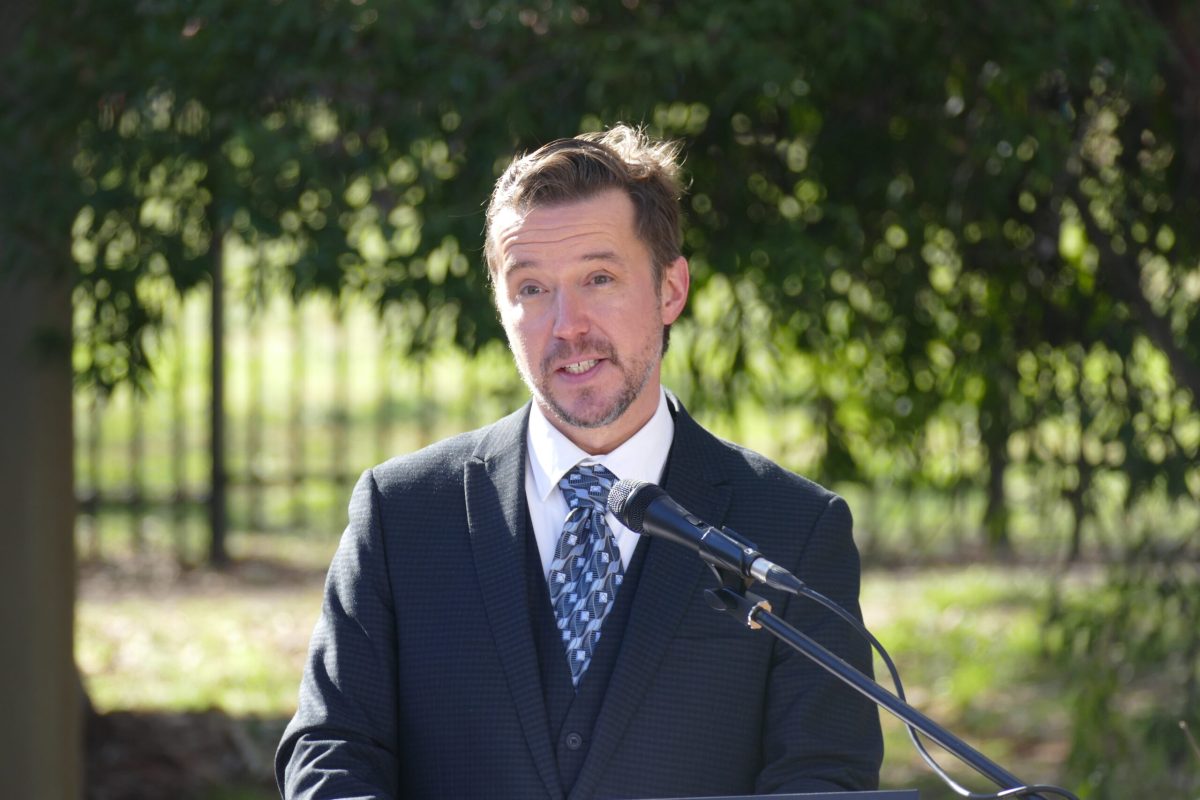
ACTCOSS CEO Dr Devin Bowles. Photo: ACTCOSS.
He said that not only were rising costs of living to blame, but also the number of social houses that have plateaued since self-government.
“There are a number of providers for people experiencing homelessness, but we also … know for someone trying to improve their mental health or someone trying to reduce their dependence on drugs, they’re going to be most able to do that when they have secure housing.
“We need to increase the proportion of social houses and also have models of housing that don’t require people to be fully perfect in the rest of their lives before they are eligible.”
Dr Bowles said the government has committed to increasing the proportion of social housing as part of its deal with Independents for Canberra’s candidate Thomas Emerson, which – even if he doesn’t expect it’s by an amount that will make much difference – is still “a very positive step”.
“Much now will depend on making sure it happens in a timely way.”












